Clynelish
The new Clynelish Distillery on the east coast of Scotland was only established in 1967. It is located on the same premises as the original "Old Clynelish Distillery", which in turn had been mothballed and was reopened for a short period of time under the name of "Brora".
| Information about the Distillery | |
|---|---|
| Scotland, Highlands | |
| -3.869231 58.024309 | |
| Active | |
| Diageo | |
| 12 t | |
| 1819 | |
| 3,000,000 l |
| Average tasting notes Tasting notes |
Calculated from 613
i
|
|
|---|---|---|
|
Nosing
Sweet:
Fruit:
Herbs:
Maritime Notes:
Seaweed:
Floral:
Honey:
Vanilla:
Spices:
Zitrus:
Peat Smoke:
Nuts:
Malt:
Caramel:
Sherry:
Oak:
Heather:
Apple:
Salt:
Pear:
Chocolate:
Pineapple:
Lemon:
Tropical Fruit:
Almonds:
Cinnamon:
Melon:
Barley:
Oil:
Alcohol:
Berries:
Cherry:
Herb:
Hay:
Green Apple:
Pepper:
Peach:
Orange:
Banana:
Lemon Peel:
Raisin:
Fig:
Grape:
Lime:
Plum:
Chili:
Mint:
Tobacco:
Dried Fruit:
Grapefruit:
Ginger:
Cake:
Hazelnut:
Iodine:
Clove:
Dark Chocolate:
Leather:
Walnut:
Blackberry:
Grass:
Date:
Kiwi:
Wheat:
Nutmeg:
Bonfire Smoke:
Medicinal Smoke:
Tasting
Sweet:
Fruit:
Spices:
Maritime Notes:
Nuts:
Oak:
Seaweed:
Malt:
Vanilla:
Oil:
Honey:
Salt:
Zitrus:
Herbs:
Sherry:
Peat Smoke:
Pepper:
Caramel:
Orange:
Heather:
Chocolate:
Floral:
Banana:
Herb:
Alcohol:
Chili:
Pear:
Lemon:
Dried Fruit:
Plum:
Raisin:
Ginger:
Apple:
Barley:
Tropical Fruit:
Berries:
Peach:
Cinnamon:
Hazelnut:
Pineapple:
Mint:
Wheat:
Almonds:
Coffee:
Dark Chocolate:
Anis:
Grape:
Melon:
Cherry:
Iodine:
Cake:
Hay:
Leather:
Green Apple:
Lime:
Clove:
Ham:
Nutmeg:
Date:
Bonfire Smoke:
Tobacco:
Kiwi:
Grapefruit:
Lemon Peel:
Rye:
Finish
Spices:
Oak:
Maritime Notes:
Sweet:
Seaweed:
Malt:
Fruit:
Nuts:
Sherry:
Zitrus:
Salt:
Herb:
Peat Smoke:
Herbs:
Pepper:
Oil:
Floral:
Chocolate:
Tropical Fruit:
Vanilla:
Honey:
Coffee:
Chili:
Dark Chocolate:
Tobacco:
Iodine:
Alcohol:
Heather:
Caramel:
Orange:
Lemon:
Ginger:
Hazelnut:
Plum:
Cinnamon:
Peach:
Dried Fruit:
Grapefruit:
Leather:
Berries:
Nutmeg:
Lemon Peel:
Wheat:
Barley:
Cake:
Apple:
Pineapple:
Coconut:
Grape:
Banana:
Almonds:
Hay:
Cherry:
Pear:
Ham:
Green Apple:
Strawberry:
|
||
The Whisky
Clynelish Whisky is very popular as a Single Malt, but is also an important ingredient of the Blends of its owner Diageo. For example, Clynelish is essential for the taste of Johnnie Walker Gold Label Reserve.
The standard bottling is Clynelish Single Malt 14 years, which was first released in 2002 and presents a complex mix of the oily and waxy notes typical for the distillery, honey, vanilla and citrus aromas, and spicy malt and maritime notes with a hint of smoke. It is composed from 60% Sherry and 40% Bourbon casks. There was also a Distillers Edition, which was finished in Oloroso Seco casks, which adds rich aromas of dried fruit to the character of the standard bottling.
A cask strength bottling that has been completely matured in American oak is only available at the distillery.
Production
In 2014 Diageo announced plans to double the production capacity of 4,800,000 litres with an investment of 30 million pounds. However, these plans were put off, and Diageo decided only to halt production for 10 months starting in April 2016 to carry out maintenance and renovation work.
The Mashing
The cast-iron mash tun of Clynelish with its copper roofing, which has been in service since the construction of the distillery in 1967, is supposed to be exchanged with one made of stainless steel in the course of the renovation in 2016. The water for the production at Clynelish is taken from Clynemilton Burn, which runs over rocks rich in minerals. It was a sought-after destination during the gold rush in the 19th century because it carried – and still does, it is said – gold. So when someone calls Clynelish 'liquid gold', they are right in several respects.
The malt for Clynelish Whisky is sourced about an hour south of the distillery, from the Black Isle. Twelve tonnes of it, along with 49,300 litres of water, go into the mash tun for one mashing. At Clynelish, there are no 'fixed' mashes, but a continuous one: This starts at around 65 degrees, afterwards the mash is heated up to 84 degrees.
The Fermentation
Eight wooden wash backs that comprise about 58,000 litres are used for fermentation at Clynelish. This lasts up to 86 hours, which is as long as at very few distilleries. The long fermentation process results in very tropical, fruity aromas in the 'beer'.
The Distillation
Clynelish has six pot stills, which were built in during renovation 2016/2017. There are three wash stills with a capacity of 25,000 litres, but they are filled with 17,000-19,000 litres. After distilling in the wash stills, the resulting Whisky has about 20% alcohol content. The three Spirit Stills have a capacity of 19,000 litres each. It's not an oversight on our part: at Clynelish, the spirit stills are actually larger than the wash stills! The result is a light, fresh new make spirit with 67% alcohol. They say it gets its 'waxiness' from the short condensers: the distillery team runs the spirit stills at lower temperatures so that the alcohol is well separated and a soft and light Highland spirit is obtained. By the way: from the distillation room you have a marvellous view over the village of Brora and the sea through a large glass front.
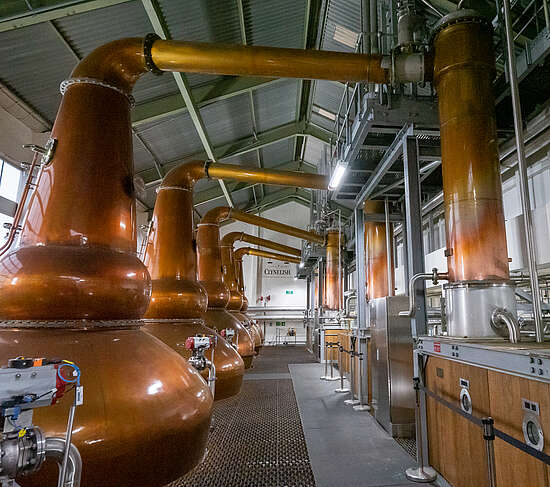
The Warehouses
The large production volume makes it impossible to store all the output in the warehouses on the premises. Most of the production is shipped to the central warehouses of Diageo. But at least 6,000 casks are allowed to mature in the two old warehouses of the neighbouring old sister distillery Brora.
The History
When the Duke of Sutherland founded a Whisky distillery in the small village of Brora on the east coast of Scotland, located roughly halfway between Inverness and John o'Groats, in 1819, he didn't necessarily do so out of love for Whisky. Clynelish, like several other distilleries, basically owes its existence to the Clearances at the beginning of the 19th century. The landlords back then discovered that they could make much more profit by turning their estates into grazing land for sheep than from the rent from the local farmers. Without further ado they were cast out, shipped away or relocated. Just like the farmers that found new jobs in the newly erected Clynelish Distillery or in the coal mines, weavings, brick factories or in the salt mining business around Brora.
Apparently the Clynelish Distillery, which operated one pair of stills, was not very successful in the beginning and soon passed through several hands. James harper, the first licenced distiller at Clynelish, was followed by John Matheson in 1827 and by George Lawson & Sons in 1846. Only when the blenders James Ainslie & Heilbron took over the distillery in 1896 together with James Risk, business started to thrive. In 1912 James Risk took over the company together with Distillers Company Ltd. (today Diageo), who took over his share in 1925.
The recession also affected Clynelish, and so it was mothballed from 1931 to 1938. During World War II production was again halted from 1941 until 1945.
1967 was the year of the big change for Clynelish: On the premises a new, larger distillery was built in the immediate vicinity. It had six stills and took over the name Clynelish.
In 1968 the old distillery was at first mothballed. When it was reactivated one year later, it was first run under the name of Clynelish B, but was then renamed Brora. The Whisky, which was produced as Brora on the two old stills until 1983, was heavily peated until 1973 and afterwards a little less heavily peated. It was mainly needed for the blend industry to compensate for the lack of peated Caol Ila Whisky, which resulted from a long draught on Islay.
Notwithstanding this, the new Clynelish Distillery kept on producing its unpeated Whisky, which has since become part of Diageo's Classic Malts series.
Visitor Centre
Since Clynelish is situated at the A9, which is used by many tourists for a ride along the coast to or from Inverness, its visitor centre is well frequented.
Opening hours
April through May:
- Monday - Friday 10.00 a.m. - 5.00 p.m.
- Visitor tours at 11 a.m., 12.30 p.m., 2.00 p.m., 3.00 p.m.
June through September:
- Monday - Saturday 10.00 a.m. - 5.00 p.m.
- Visitor tours at 11.00 a.m., 12.30 p.m., 2.00 p.m., 3.00 p.m.
- Sunday 11.00 a.m. - 4.00 p.m.
- Visitor tours at 12.30 p.m., 2.00 p.m., 3.00 p.m.
October:
- Monday - Friday 10.00 a.m. - 3.00 p.m.
- Visitor tours at 11.00 a.m., 12.30 p.m., 2.00 p.m.
November through December:
- Monday - Friday 10.00 a.m. - 3.00 p.m.
- Visitor tours at 11.00 a.m., 2.00 p.m.
Visitor tour
Standard tour: £6 per person incl. a dram of Clynelish Single Malt 14 years
In addition, there are several extended tours on offer, ranging from £12 to £120 per person. These tours must be booked in advance under 01408 623000 or clynelish.distillery@diageo.com.
Address
Clynelish Distillery
Sutherland
KW9 6LR
Phone: 01408 623000
E-mail: clynelish.distillery@diageo.com
Clynelish Distillery
Brora
Sutherland
KW9 6LR
Tel: +44 (0)1408-623000
Email: clynelish.distillery@diageo.com


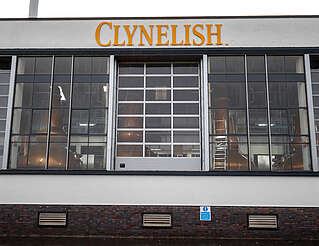
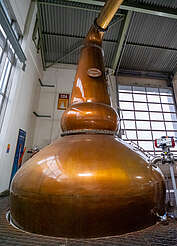
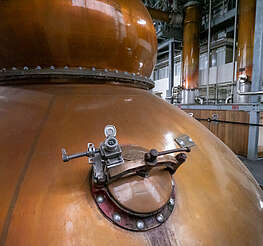
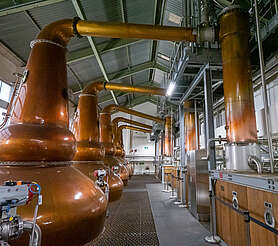
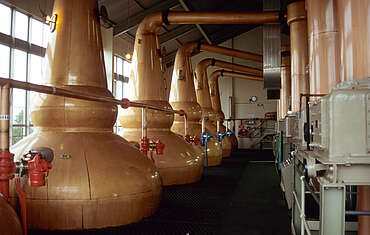
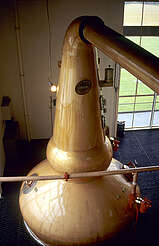
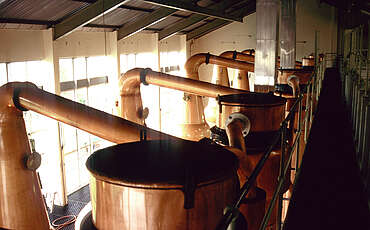
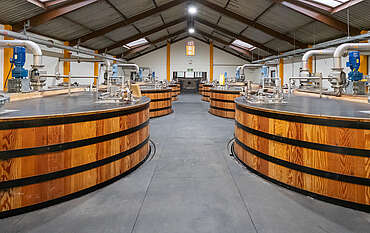
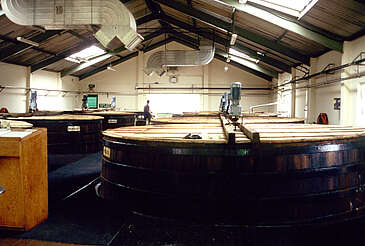
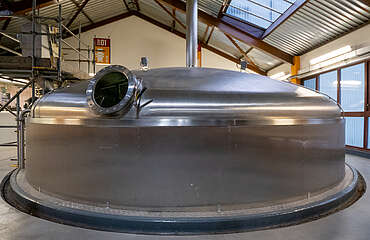
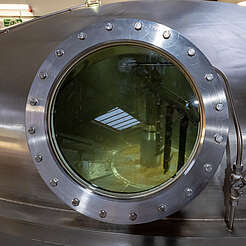
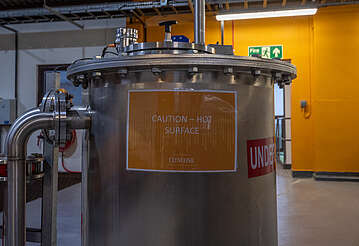
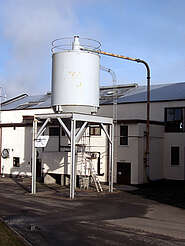
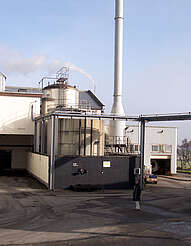
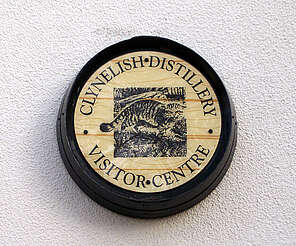
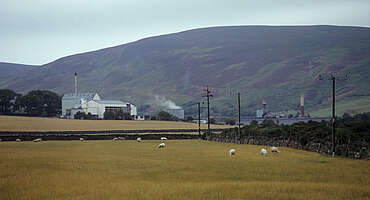
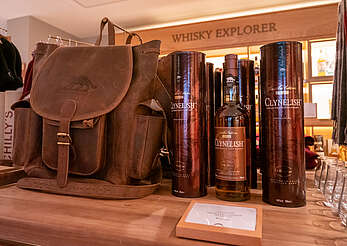
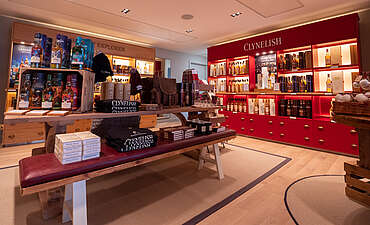
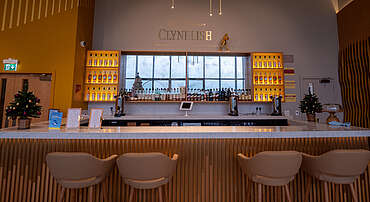
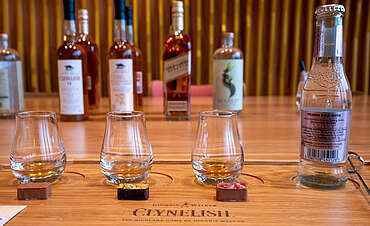
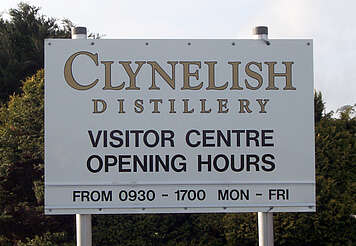

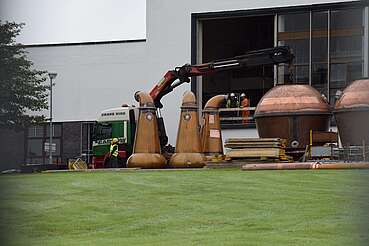
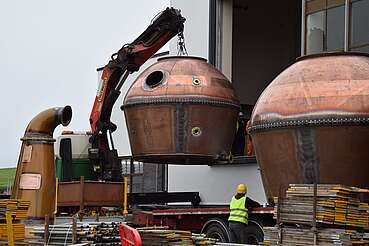
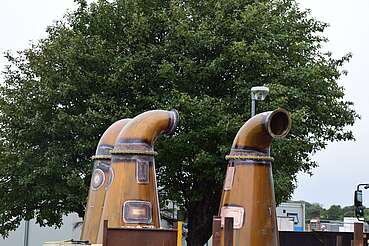

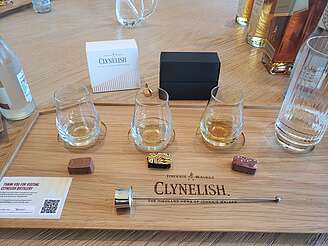
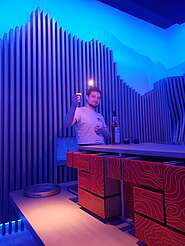
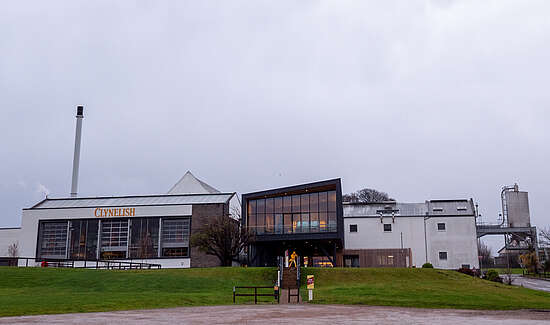
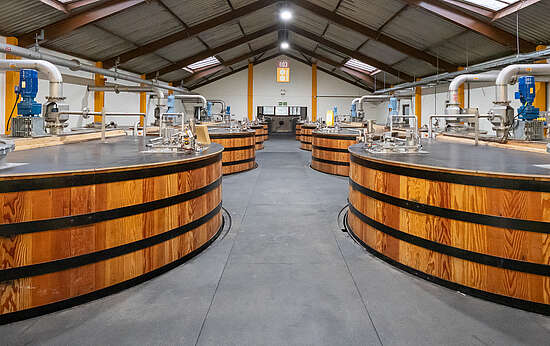
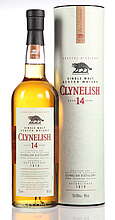
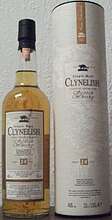
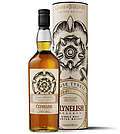
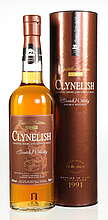
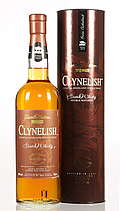
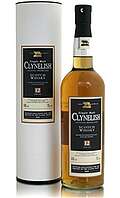

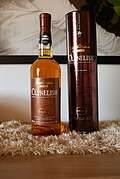

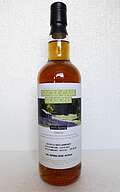





User Notes about the Distillery
Share your experience with other whisky lovers. Write a note about your trip to the Clynelish distillery.